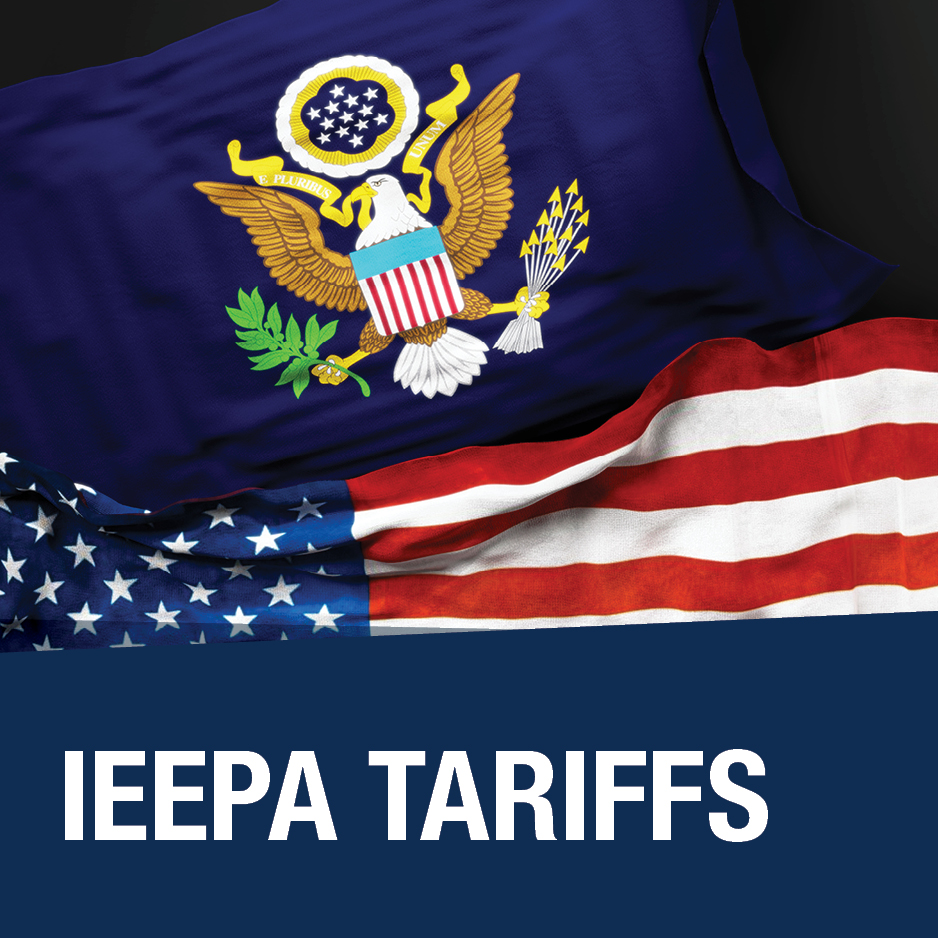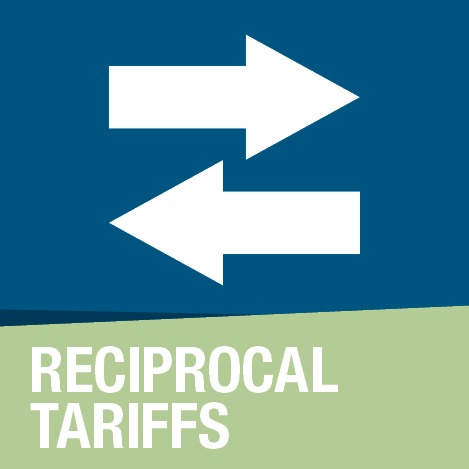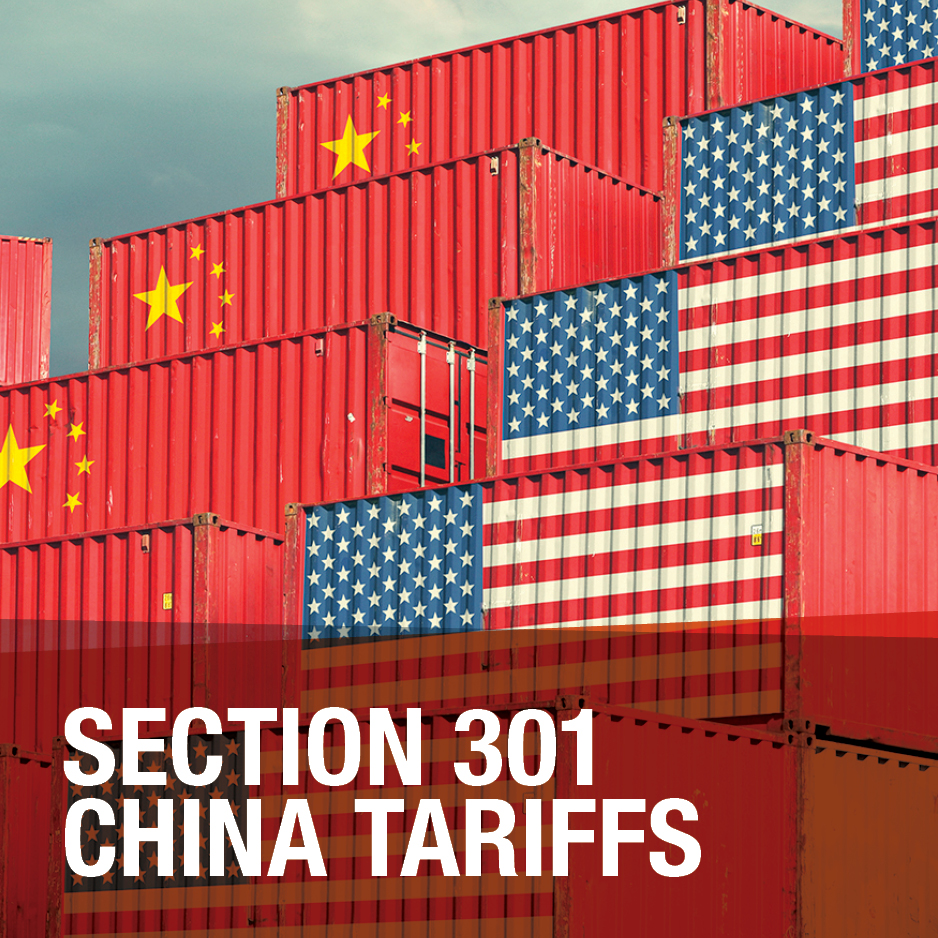
Tariffs and Trade
Tariffs & Trade Impacting the Automotive Aftermarket Latest News
The Auto Care Association is actively monitoring this evolving situation and will provide updates as new information emerges. Check this page regularly for the latest developments.
Member-only Resource
Auto Care Tariff Calculator
Use our tariff calculator to help you identify which recent U.S. tariffs may apply cumulatively to your products.
See CalculatorHas your business been impacted by Tariffs?
We welcome your feedback to help us better understand and assess the impact of these tariffs on our industry and businesses. Please share with us by contacting Angela Chiang, director, international affairs, at angela.chiang@autocare.org.
Share Your Impact StoryCurrent Status
On March 26, 2025, President Trump issued a proclamation imposing a 25% tariff on imports of automobiles (effective April 3, 2025) and certain automobile parts (tentatively effective May 3, 2025).
Current Status
Effective March 7, 2025, imports from Canada and Mexico that meet USMCA rules of origin are exempt from the additional IEEPA duties. Imports that do not satisfy USMCA rules of origin are subject to a 25% tariff rate. Energy products from Canada and potash from Mexico and Canada are subject to a reduced tariff rate of 10%.
Effective March 4, 2025, imports from China are subject to a 20% tariff rate, an increase from a 10% tariff rate that went into effect on Feb. 4, 2025.
Note that many products imported from Canada and Mexico were already duty-free under MFN rates, making USMCA declarations unnecessary. Under the new policy, importers must document and ensure USMCA compliance (if eligible) to be exempt from the IEEPA tariffs. Otherwise, the 25% IEEPA tariff would apply.
Current Status
On April 1, 2025, President Trump issued an Executive Order under the International Emergency Economic Powers Act (IEEPA) to establish a 10% baseline tariff and country-specific reciprocal tariffs on imported goods.
On April 9, 2025, President Trump issued an order delaying the country-specific reciprocal tariffs effective April 10, 2025. The country-specific reciprocal tariffs originally went into effect on April 9, 2025 and will be suspended for 90-days, after which the country-specific rates in Annex I will apply.
The baseline 10% tariff remains in effect for all products from all countries during this time, except for products that are covered by the exemptions listed in the original order (see below).
However, the 90-day pause does not apply to China due to their retaliatory tariffs on U.S.-origin goods. China's reciprocal tariff rate has increased from the original 34% to 84% and now to 125%. This applies to goods entered for consumption, or withdrawn from warehouse for consumption, on or after 12:01 a.m. EDT on April 10, 2025.
Current Status
As of March 12, 2025, the expanded Section 232 tariffs on steel and aluminum are now in effect. All imports of steel and aluminum are subject to a 25% tariff, and previous country exemptions and tariff-rate quotas have been eliminated.
The tariffs also apply to certain derivative products based on the steel and aluminum content. The product exclusion process has been terminated, meaning previously approved exclusions are no longer valid.
Current Status
The Section 301 China tariffs implemented in 2018-2019 remain in effect, with most tariff rates unchanged since their initial implementation. While some product exclusions have been extended, the majority have expired, except for a limited set scheduled to expire on May 31, 2025.
Additionally, a new 20% tariff on imports from China was imposed under IEEPA, taking effect on Mar. 4, 2025.
Trade and Tariffs Update: June 30, 2025
Recent tariff measures now require supply chains to maintain a higher level of data granularity, including detailed information on inputs and production. Importers must be prepared to document and support value content declarations with a level of specificity that may not have been previously required.
Members are encouraged to consult with their customs broker or trade counsel for further guidance and to ensure compliance with all applicable tariff programs.
Commerce Announces Auto Parts Tariff ‘Inclusion’ Process
The U.S. Department of Commerce announced it will begin accepting quarterly requests from domestic producers to expand the list of auto parts subject to Section 232 tariffs. The new process allows petition submissions during four two-week windows in January, April, July and October, with the first window opening July 1, 2025.
After each submission window closes, a non-confidential version of each valid request will be posted on Regulations.gov and opened to public comment for 14 days. This review period will allow for final analysis and determination, including whether the product qualifies as an auto part and whether increased imports threaten to impair national security.
Requests must be submitted via Regulations.gov and include:
- Applicant identification
- Description of the requested auto part
- Eight- or 10-digit HTSUS classification requested for inclusion
- Explanation of why the article qualifies as an auto part
- Information on the affected domestic industry
- Statistics on imports and domestic production
- Description of how and to what extent imports have increased in a way that threatens national security or undermines Section 232 objectives
The International Trade Administration will issue a determination within 60 days of receiving the request. This process may result in additional duties on imports not currently subject to the 25% Section 232 auto parts tariffs.
U.S.-Canada Trade Talks to Resume After Canada Withdraws Digital Services Tax
Canada rescinded its planned digital services tax just hours before its scheduled implementation on June 30, citing an agreement with the United States to resume bilateral trade negotiations. The tax, which would have been retroactive to January 2022 and targeted major U.S. technology firms, had led to a pause in trade talks and strong objections from the White House.
President Trump had previously stated that the United States would end all trade negotiations with Canada and impose new tariffs in response to the tax. Canada’s decision to withdraw the measure reopens the path for renewed engagement.
Canadian officials noted that the withdrawal was a condition for resuming discussions on a broader economic and security agreement, now expected to be finalized by July 21.
Government of Canada Statement
U.S., China Reach Trade Framework
The United States and China have agreed on the core details of a trade framework negotiated during June talks in London, according to China’s Ministry of Commerce. The framework includes provisions for rare earth exports and the easing of certain technology restrictions.
Treasury Secretary Bessent noted that tariffs on imports from China now start at 30%, consisting of a 20% IEEPA fentanyl-related tariff and a 10% reciprocal tariff. An official agreement has not yet been released.
Ministry of Commerce Statement
Trade Talks Could Conclude by Sept. 1
Treasury Secretary Bessent said that ongoing trade negotiations with key partners could conclude by Sept. 1. The administration is in talks with more than a dozen countries and has thus far announced a framework agreement with the United Kingdom and de-escalatory measures with China.
Bessent indicated that countries negotiating in good faith may receive flexibility if deals are not finalized by the current deadline. The administration had previously announced that reciprocal tariffs, initially paused for 90 days, are set to take effect on July 8. However, that deadline may be extended for countries actively engaged in negotiations.
Importer Urges Court to Reject White House De Minimis Policy Argument
Auto parts importer Detroit Axle filed a brief with the U.S. Court of International Trade opposing the administration’s legal justification for limiting de minimis treatment on certain low-value imports. The administration has argued that its restrictions, particularly on Chinese goods, are lawful under national security and equity authorities.
Detroit Axle contended that the administration’s interpretation is overly broad and that neither the Trade Act of 1974 nor other statutes support the executive branch’s claimed discretion to revoke de minimis eligibility based on foreign policy considerations. The case is part of broader litigation surrounding the scope of executive trade enforcement powers.
Latest News
 On Your Behalf
On Your Behalf Press Release
Auto Care Association Submits Comments, Economic Study to USTR, Warns Proposed Shipbuilding Remedies Will Harm American Consumers, Businesses
 On Your Behalf
On Your Behalf Auto Care Association Joins Coalition Letter in Opposition of USTR's Shipping Remedies Proposal








Leave a comment